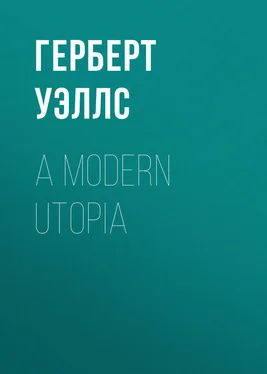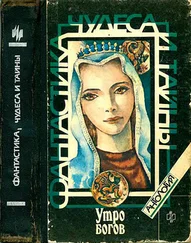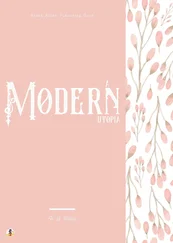Герберт Уэллс - A Modern Utopia
Здесь есть возможность читать онлайн «Герберт Уэллс - A Modern Utopia» — ознакомительный отрывок электронной книги совершенно бесплатно, а после прочтения отрывка купить полную версию. В некоторых случаях можно слушать аудио, скачать через торрент в формате fb2 и присутствует краткое содержание. Жанр: foreign_antique, foreign_prose, на английском языке. Описание произведения, (предисловие) а так же отзывы посетителей доступны на портале библиотеки ЛибКат.
- Название:A Modern Utopia
- Автор:
- Жанр:
- Год:неизвестен
- ISBN:нет данных
- Рейтинг книги:5 / 5. Голосов: 1
-
Избранное:Добавить в избранное
- Отзывы:
-
Ваша оценка:
- 100
- 1
- 2
- 3
- 4
- 5
A Modern Utopia: краткое содержание, описание и аннотация
Предлагаем к чтению аннотацию, описание, краткое содержание или предисловие (зависит от того, что написал сам автор книги «A Modern Utopia»). Если вы не нашли необходимую информацию о книге — напишите в комментариях, мы постараемся отыскать её.
A Modern Utopia — читать онлайн ознакомительный отрывок
Ниже представлен текст книги, разбитый по страницам. Система сохранения места последней прочитанной страницы, позволяет с удобством читать онлайн бесплатно книгу «A Modern Utopia», без необходимости каждый раз заново искать на чём Вы остановились. Поставьте закладку, и сможете в любой момент перейти на страницу, на которой закончили чтение.
Интервал:
Закладка:
That incomparable catalogue! That incomparable catalogue! Inspired by the Muse of Parody, we might go on to the pages of “Who's Who,” and even, with an eye to the obdurate republic, to “Who's Who in America,” and make the most delightful and extensive arrangements. Now where shall we put this most excellent man? And this?..
But, indeed, it is doubtful if we shall meet any of these doubles during our Utopian journey, or know them when we meet them. I doubt if anyone will be making the best of both these worlds. The great men in this still unexplored Utopia may be but village Hampdens in our own, and earthly goatherds and obscure illiterates sit here in the seats of the mighty.
That again opens agreeable vistas left of us and right.
But my botanist obtrudes his personality again. His thoughts have travelled by a different route.
“I know,” he says, “that she will be happier here, and that they will value her better than she has been valued upon earth.”
His interruption serves to turn me back from my momentary contemplation of those popular effigies inflated by old newspapers and windy report, the earthly great. He sets me thinking of more personal and intimate applications, of the human beings one knows with a certain approximation to real knowledge, of the actual common substance of life. He turns me to the thought of rivalries and tendernesses, of differences and disappointments. I am suddenly brought painfully against the things that might have been. What if instead of that Utopia of vacant ovals we meet relinquished loves here, and opportunities lost and faces as they might have looked to us?
I turn to my botanist almost reprovingly. “You know, she won't be quite the same lady here that you knew in Frognal,” I say, and wrest myself from a subject that is no longer agreeable by rising to my feet.
“And besides,” I say, standing above him, “the chances against our meeting her are a million to one… And we loiter! This is not the business we have come upon, but a mere incidental kink in our larger plan. The fact remains, these people we have come to see are people with like infirmities to our own – and only the conditions are changed. Let us pursue the tenour of our inquiry.”
With that I lead the way round the edge of the Lake of Lucendro towards our Utopian world.
Down the mountain we shall go and down the passes, and as the valleys open the world will open, Utopia, where men and women are happy and laws are wise, and where all that is tangled and confused in human affairs has been unravelled and made right.
CHAPTER THE SECOND
Concerning Freedoms
§ 1
Now what sort of question would first occur to two men descending upon the planet of a Modern Utopia? Probably grave solicitude about their personal freedom. Towards the Stranger, as I have already remarked, the Utopias of the past displayed their least amiable aspect. Would this new sort of Utopian State, spread to the dimensions of a world, be any less forbidding?
We should take comfort in the thought that universal Toleration is certainly a modern idea, and it is upon modern ideas that this World State rests. But even suppose we are tolerated and admitted to this unavoidable citizenship, there will still remain a wide range of possibility… I think we should try to work the problem out from an inquiry into first principles, and that we should follow the trend of our time and kind by taking up the question as one of “Man versus the State,” and discussing the compromise of Liberty.
The idea of individual liberty is one that has grown in importance and grows with every development of modern thought. To the classical Utopists freedom was relatively trivial. Clearly they considered virtue and happiness as entirely separable from liberty, and as being altogether more important things. But the modern view, with its deepening insistence upon individuality and upon the significance of its uniqueness, steadily intensifies the value of freedom, until at last we begin to see liberty as the very substance of life, that indeed it is life, and that only the dead things, the choiceless things, live in absolute obedience to law. To have free play for one's individuality is, in the modern view, the subjective triumph of existence, as survival in creative work and offspring is its objective triumph. But for all men, since man is a social creature, the play of will must fall short of absolute freedom. Perfect human liberty is possible only to a despot who is absolutely and universally obeyed. Then to will would be to command and achieve, and within the limits of natural law we could at any moment do exactly as it pleased us to do. All other liberty is a compromise between our own freedom of will and the wills of those with whom we come in contact. In an organised state each one of us has a more or less elaborate code of what he may do to others and to himself, and what others may do to him. He limits others by his rights, and is limited by the rights of others, and by considerations affecting the welfare of the community as a whole.
Individual liberty in a community is not, as mathematicians would say, always of the same sign. To ignore this is the essential fallacy of the cult called Individualism. But in truth, a general prohibition in a state may increase the sum of liberty, and a general permission may diminish it. It does not follow, as these people would have us believe, that a man is more free where there is least law and more restricted where there is most law. A socialism or a communism is not necessarily a slavery, and there is no freedom under Anarchy. Consider how much liberty we gain by the loss of the common liberty to kill. Thereby one may go to and fro in all the ordered parts of the earth, unencumbered by arms or armour, free of the fear of playful poison, whimsical barbers, or hotel trap-doors. Indeed, it means freedom from a thousand fears and precautions. Suppose there existed even the limited freedom to kill in vendetta, and think what would happen in our suburbs. Consider the inconvenience of two households in a modern suburb estranged and provided with modern weapons of precision, the inconvenience not only to each other, but to the neutral pedestrian, the practical loss of freedoms all about them. The butcher, if he came at all, would have to come round in an armoured cart…
It follows, therefore, in a modern Utopia, which finds the final hope of the world in the evolving interplay of unique individualities, that the State will have effectually chipped away just all those spendthrift liberties that waste liberty, and not one liberty more, and so have attained the maximum general freedom.
There are two distinct and contrasting methods of limiting liberty; the first is Prohibition, “thou shalt not,” and the second Command, “thou shalt.” There is, however, a sort of prohibition that takes the form of a conditional command, and this one needs to bear in mind. It says if you do so-and-so, you must also do so-and-so; if, for example, you go to sea with men you employ, you must go in a seaworthy vessel. But the pure command is unconditional; it says, whatever you have done or are doing or want to do, you are to do this, as when the social system, working through the base necessities of base parents and bad laws, sends a child of thirteen into a factory. Prohibition takes one definite thing from the indefinite liberty of a man, but it still leaves him an unbounded choice of actions. He remains free, and you have merely taken a bucketful from the sea of his freedom. But compulsion destroys freedom altogether. In this Utopia of ours there may be many prohibitions, but no indirect compulsions – if one may so contrive it – and few or no commands. As far as I see it now, in this present discussion, I think, indeed, there should be no positive compulsions at all in Utopia, at any rate for the adult Utopian – unless they fall upon him as penalties incurred.
Читать дальшеИнтервал:
Закладка:
Похожие книги на «A Modern Utopia»
Представляем Вашему вниманию похожие книги на «A Modern Utopia» списком для выбора. Мы отобрали схожую по названию и смыслу литературу в надежде предоставить читателям больше вариантов отыскать новые, интересные, ещё непрочитанные произведения.
Обсуждение, отзывы о книге «A Modern Utopia» и просто собственные мнения читателей. Оставьте ваши комментарии, напишите, что Вы думаете о произведении, его смысле или главных героях. Укажите что конкретно понравилось, а что нет, и почему Вы так считаете.







